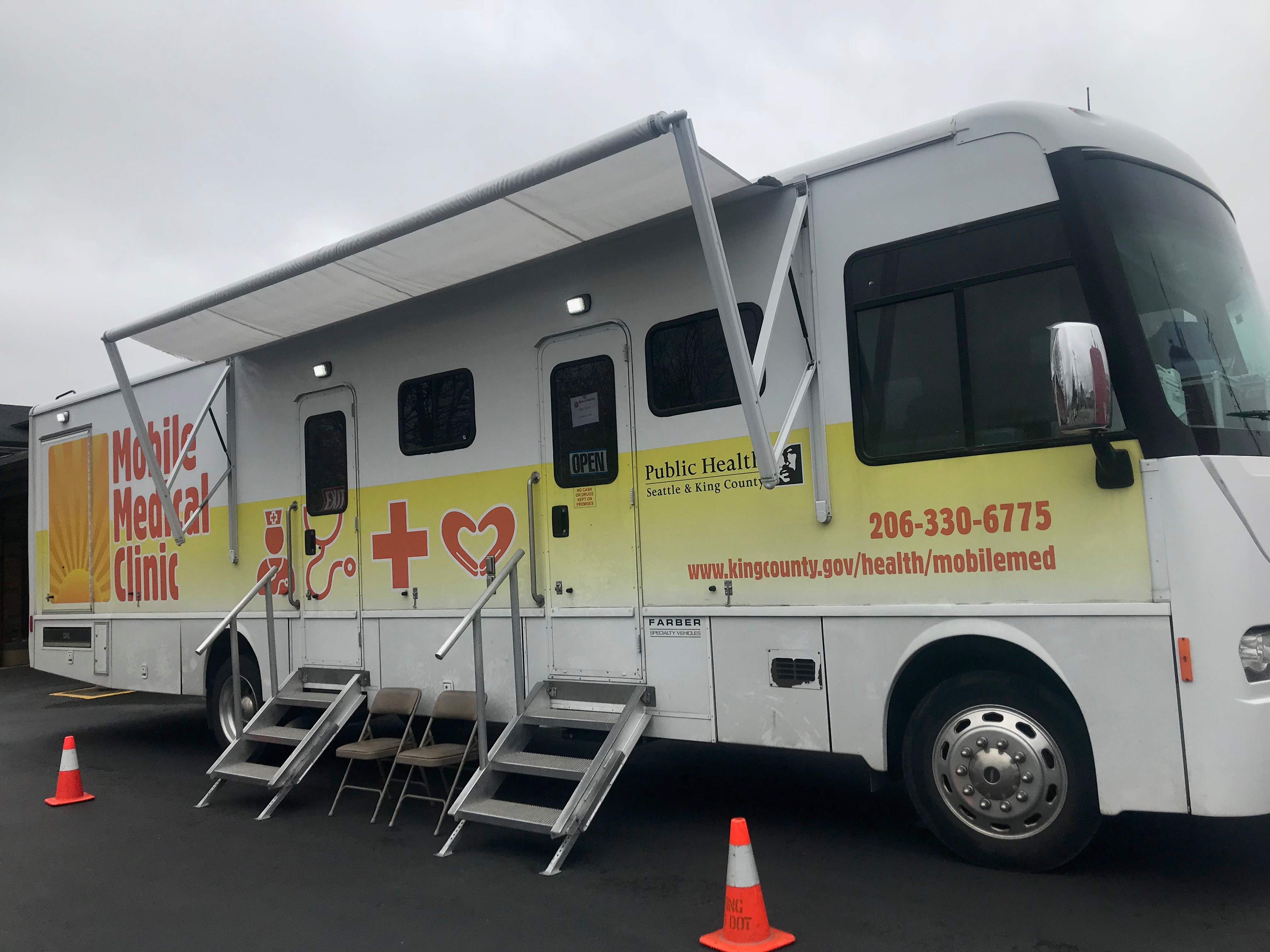I had no idea before entering my internship that HealthPoint had a program specifically designed to serve at-risk and vulnerable populations. It’s called Community Programs and, Katherine Gudgel, HealthPoint’s Manager of Community & Social Services explained that:
“It health services outside of a traditional clinical setting. The two main populations served by HealthPoint Community Programs are people experiencing homelessness and students at three King County high schools. Families and individuals experiencing or at risk of homelessness can meet with HealthPoint nurses and social workers at homeless housing locations, homeless shelters, day centers and food banks, including locations served by the Public Health, Seattle & King County Mobile Medical Van. These folks receive nursing care, referrals to primary and specialty care, referrals to other social services and assistance signing up for health insurance."
.jpeg)
I wanted to learn more, so over the last few months I explored two different Community Health Programs that HealthPoint offers. While I learned a lot, my biggest ah-ha moment was when I realized that these programs empower the patients, not the providers, to be in charge of their health.
The first Community Health Program I explored was a shelter in Kent, where I talked with the providers and patients. The Kent HOPE Day Center is a shelter that wants to reduce homeless in Kent by providing a safe space for women and children to get meals, employment assistance, health evaluations, and mental health screenings. I talked to a HealthPoint shelter nurse, Sonja, about how she empowers the patients that come in and seek care. I asked Sonja what her role was for her patients and she said, “I think of myself as a supplement to their provider, not a substitute. I’m here to empower people and teach them how to use their benefits.”
Community Health Program staff follow the patients’ lead, and help them when patients ask for help. I saw this in action: Sonja met with a patient who wanted her blood pressure checked. When Sonja asked her if she wanted to check a different health issue she said, “Nope, not today. But I do want to get some bus passes”. Sonja followed her lead and helped give her care that she needed in that moment. Following patients’ leads is vital because they are their own experts in their lives. They know firsthand what they need, and what would be best for them.
I also went and visited the Mobile Medical Van, which is a partnership HealthPoint has with Public Health of King County where homeless patients have the opportunity to take charge of their health. I toured the Mobile Medical Van, which is an RV with a patient check-in area, a nurses station, and an office for doctors to screen patients. They have a schedule where they park their van in different church parking lots all around King County where homeless patients can come get a free meal alongside of a doctor's visit. I saw firsthand patients coming in to talk to professionals about concerns such as physical ailments and housing resources. A routine check up they often do is depression screenings. I interviewed Christy, a social worker on the Mobile Medical Van and she said, “someone comes on and we can do screening for depression. If they score on the depression screening we will check in and ask if it is something they want to talk about. If they say no, we will tell them if they change their mind we are here to help.” Having a support system like the providers on the Mobile Medical Van, while also choosing what is best for them, empowers homeless patients to utilize vital resources even in times of extreme vulnerability.
I saw firsthand how the most vulnerable populations choose the best care for THEM, and how HealthPoint supports them in reaching their health goals. Community Health Programs is a crucial aspect of HealthPoint that makes sure EVERYONE gets the GREAT CARE they need regardless of circumstance.
